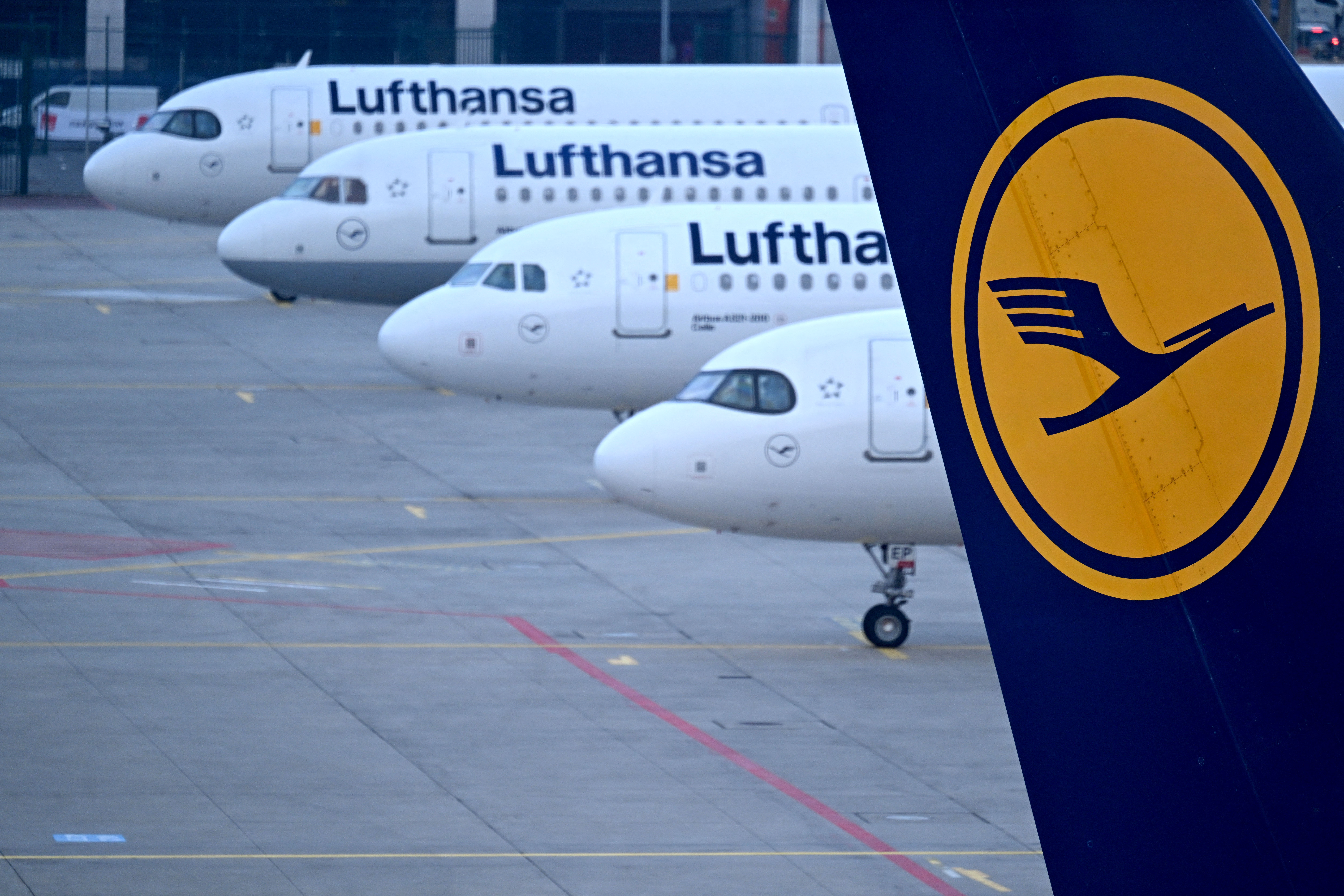Germany braces for new week of strikes in rail, air travel

The logo of German airline Lufthansa can be seen on the vertical stabilizer of a plane standing with other Lufthansa aircrafts at the airport in Frankfurt am Main, western Germany, on March 7, 2024. AFP FILE PHOTO
FRANKFURT — Germans faced more travel upheaval after train drivers announced Sunday a new 24-hour stoppage, hot on the heels of a strike announcement by Lufthansa cabin crew.
The GDL train drivers’ union said the latest strike affecting passenger services would start at 0100 GMT on Tuesday and last until 0100 GMT Wednesday.
For cargo services the strike would start a few hours earlier, the union said in a statement, blaming deadlocked talks with rail operator Deutsche Bahn.
READ: German airport security’s nationwide protests to ground flights
The walkout will be the union’s sixth since November and comes less than a week after a 35-hour stoppage by its train drivers caused travel misery for thousands of rail passengers.
Article continues after this advertisementAdding to the chaos, Lufthansa cabin crew are set to walk off the job at Frankfurt airport on Tuesday, and at Munich airport on Wednesday.
Article continues after this advertisementThe German airline group was already hit by a two-day strike by ground staff last week, as workers press demands for higher pay.
Europe’s largest economy has faced industrial action for months as workers and management across numerous sectors wrestle over terms amid high inflation and weak business activity.
READ: Lufthansa strike hits air travel as German disruption mounts
The GDL union said Deutsche Bahn had failed to come up with an improved written offer by a Sunday evening deadline, a move that “inevitably leads to industrial action”, GDL boss Claus Weselsky said.
Deutsche Bahn had called earlier Sunday for a fresh round of talks on Monday.
“We are convinced that we will only succeed in reaching an agreement through dialogue at the negotiating table,” said Deutsche Bahn’s human resources director Martin Seiler.
As well as salary increases, the GDL union’s key demand is a reduced work week of 35 hours, down from 38 currently, at full pay.
Deutsche Bahn said it had made concessions amounting to up to 13 percent more pay, as well as the option of cutting the working week down to 37 hours starting in 2026.